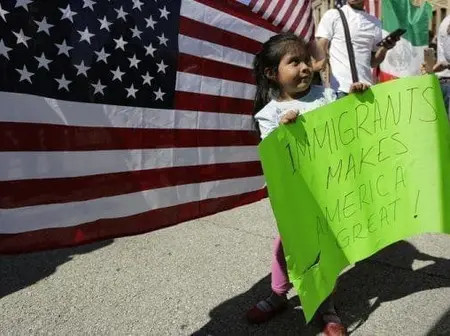October 4, 2025 — In a controversial new move aimed at reducing the number of undocumented minors in federal custody, the U.S. government has announced it will offer a one-time $2,500 stipend to unaccompanied migrant teens. They must voluntarily agree to return to their countries of origin. This is part of the strategy the US will use to offer these migrant teens new opportunities.
The initiative, unveiled in a notice sent Friday by the Department of Health and Human Services (HHS), marks the latest effort by the Trump administration to encourage self-deportations and reduce the burden on the U.S. immigration system. This move enables them to offer alternatives to migrant teens seeking support.
According to the notice, the Department of Homeland Security (DHS) will provide the resettlement stipend to unaccompanied alien children aged 14 and older who choose voluntary departure. By offering financial support to these migrant teens, the funds are intended to assist with reintegration in their home countries.
“The Department of Homeland Security will provide a one-time resettlement support stipend of $2,500 to unaccompanied alien children, 14 years of age and older, who have elected to voluntarily depart the United States as of the date of this notice and moving forward,” the statement reads.
The stipend offer is available only to minors in the custody of HHS’ Office of Refugee Resettlement (ORR). This office is legally mandated to house unaccompanied migrant children in shelters, foster care, or other approved facilities. These conditions apply until they turn 18 or are released to an appropriate sponsor. This mechanism becomes a means through which the US could provide support to migrant teens.
This new policy does not apply to migrant youth already in the U.S. under other immigration statuses. Nor does it apply to those outside of ORR custody.
The $2,500 offer is the latest in a series of actions by the Trump administration aimed at deterring migration. It also helps in managing record-high numbers of unaccompanied minors arriving at the southern border. As part of their initiative, the US aims to offer migrant teens a way back with financial support.
Administration officials argue the stipend could serve as both an incentive for voluntary departure and a humanitarian gesture. It supports safe resettlement.
Critics, however, say the policy puts undue pressure on vulnerable teens to make life-altering decisions under difficult circumstances.
Immigrant advocacy groups have voiced immediate concern over the potential coercive nature of the policy. Many fear that teenagers, some of whom have fled violence or poverty, may feel compelled to accept the money despite serious risks in their home countries. The strategy to offer migrant teens financial incentives has sparked debates.
“This is not true voluntariness,” said an immigration attorney based in Los Angeles. “When you’re 15 and stuck in custody with no family, being offered money to leave can feel more like a threat than a choice.”
Others question the long-term implications of incentivizing self-deportation for minors without fully addressing the root causes driving migration.
It remains unclear how many teens will take up the offer, or how the administration will ensure that those who accept it are doing so of their own free will. They must have adequate support upon return. Yet, the intent remains clear as the US continues to explore ways to offer migrant teens viable options.
The policy is expected to take effect immediately, applying to any eligible unaccompanied minors currently in federal custody. It will also apply to all future arrivals who meet the criteria.
As legal and advocacy organizations assess the announcement, court challenges or congressional scrutiny could follow in the coming weeks.

Leave a Reply